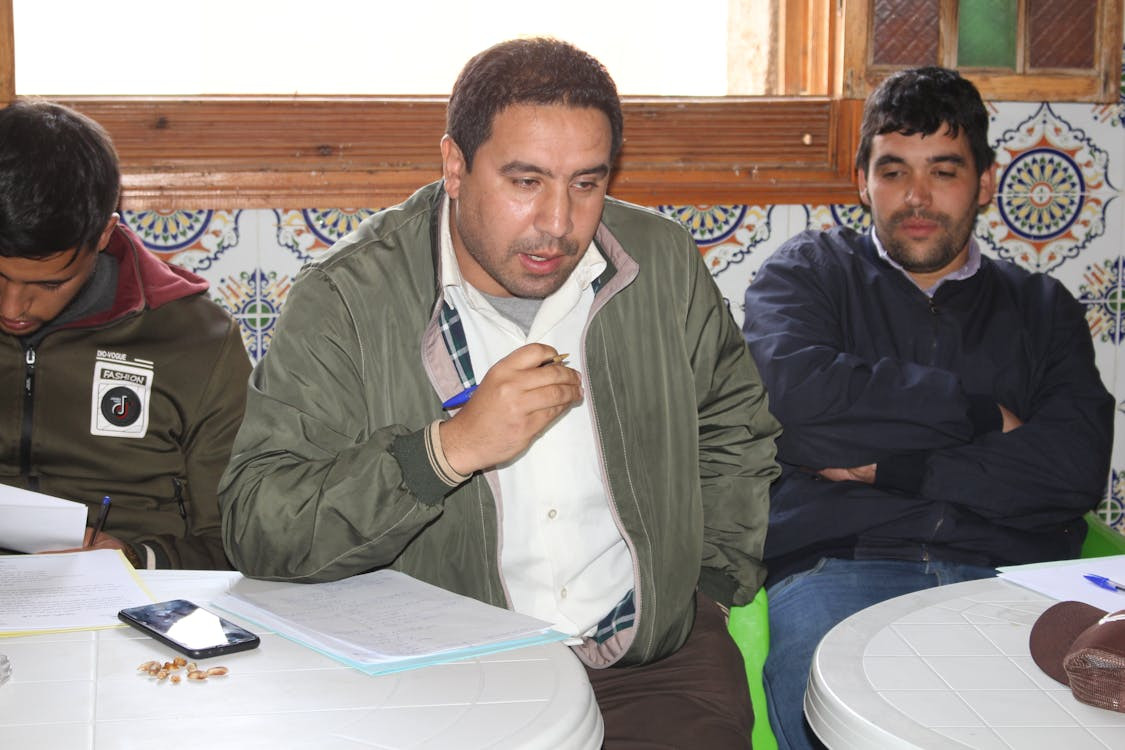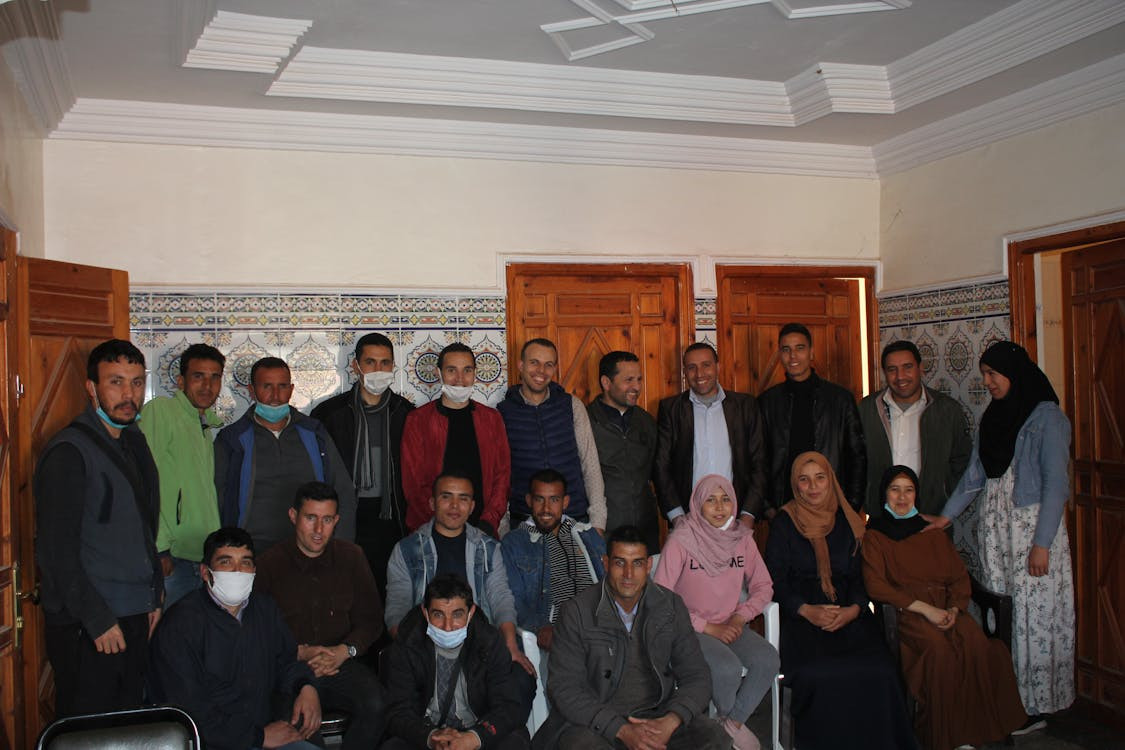Building Bridges Foster Family Agency cultivates stable homes and brighter futures by linking compassionate individuals with children in need, nurturing family bonds and providing unwavering support. hudsonfamily.net is committed to ensuring that every child experiences the warmth and security of a loving family, as well as offering foster care, adoption support and resource family services. Let’s explore how foster care changes lives, builds stronger communities, and brings hope to vulnerable children and families.
1. What is a Building Bridges Foster Family Agency?
A building bridges foster family agency is a vital organization that connects children in foster care with loving and supportive foster families. These agencies play a crucial role in ensuring children have a safe and nurturing environment while their biological families work towards reunification or until a permanent home can be found through adoption. Building bridges foster family agencies like hudsonfamily.net provides comprehensive support to both foster families and children, offering training, resources, and ongoing assistance to navigate the complexities of foster care.
1.1. Key Functions of a Foster Family Agency
Foster family agencies perform several essential functions to support children and families involved in the foster care system. According to the Child Welfare Information Gateway, these functions include:
- Recruitment and Training: Finding and preparing individuals and families to become foster parents.
- Placement Services: Matching children with suitable foster homes based on their individual needs and circumstances.
- Case Management: Providing ongoing support and supervision to foster families and children, including regular home visits and coordination with other service providers.
- Therapeutic Services: Offering counseling and therapy to address the emotional and behavioral needs of children in foster care.
1.2. The Role of Building Bridges in Foster Care
Building bridges foster family agencies serve as intermediaries between the child welfare system and the community, facilitating the placement of children in stable and supportive homes. They ensure that foster families meet the necessary requirements and provide a nurturing environment for children who have experienced trauma and displacement. By building these bridges, agencies like hudsonfamily.net help to create positive outcomes for children in foster care, promoting their well-being and development.
 A cheerful African-American foster parent and child smiling, signifying the supportive atmosphere of foster care building bridges foster family agency.
A cheerful African-American foster parent and child smiling, signifying the supportive atmosphere of foster care building bridges foster family agency.
1.3. How Building Bridges Agencies Differ From Other Organizations
Unlike other child welfare organizations, building bridges foster family agencies specialize in foster care and adoption. They focus specifically on recruiting, training, and supporting foster families, as well as providing placement services for children in need. While other organizations may offer a broader range of services, such as family counseling or child abuse prevention programs, building bridges agencies concentrate their efforts on ensuring children in foster care have safe and stable homes.
2. Why Building Bridges Foster Family Agency is Essential
Building bridges foster family agencies are essential for providing stability, support, and a sense of belonging to children who have been separated from their biological families. These agencies play a critical role in ensuring children in foster care receive the care and attention they need to thrive. Foster family agencies contribute to the overall well-being of children, families, and communities.
2.1. Providing Stable Homes for Children in Need
One of the primary reasons building bridges foster family agencies are essential is their ability to provide stable homes for children in need. According to the Annie E. Casey Foundation, children in foster care often experience multiple placements, which can lead to emotional distress and developmental delays. Foster family agencies work diligently to match children with foster families who can provide a safe, nurturing, and consistent environment. This stability is crucial for children’s emotional and psychological well-being, allowing them to heal from past trauma and build healthy relationships.
2.2. Supporting Foster Families and Children
In addition to providing stable homes, building bridges foster family agencies offer comprehensive support to both foster families and children. This support includes:
- Training and Education: Preparing foster parents to meet the unique needs of children in their care.
- Financial Assistance: Providing stipends to help cover the costs of caring for a foster child.
- Case Management: Offering ongoing support and guidance to foster families and children, including regular home visits and coordination with other service providers.
- Therapeutic Services: Providing counseling and therapy to address the emotional and behavioral needs of children in foster care.
This comprehensive support ensures that foster families have the resources and expertise they need to provide a loving and supportive environment for children in their care.
2.3. Contributing to Community Well-Being
Building bridges foster family agencies contribute to the overall well-being of communities by providing a safety net for vulnerable children and families. By ensuring children in foster care have access to stable homes and supportive services, these agencies help to prevent long-term negative outcomes such as homelessness, substance abuse, and involvement in the criminal justice system. Furthermore, foster family agencies promote civic engagement by encouraging community members to become foster parents and support children in need.
3. What are the Benefits of Working With a Building Bridges Foster Family Agency?
Working with a building bridges foster family agency offers numerous benefits for both foster families and children in care. These agencies provide comprehensive support, training, and resources to ensure successful placements and positive outcomes. From initial training to ongoing assistance, foster family agencies are committed to helping foster families and children thrive.
3.1. Comprehensive Support and Training
One of the primary benefits of working with a building bridges foster family agency is the comprehensive support and training provided to foster families. According to the National Foster Parent Association, foster parents need ongoing training and support to effectively meet the unique needs of children in their care. Foster family agencies offer a variety of training programs, including:
- Pre-Service Training: Preparing prospective foster parents for the challenges and rewards of foster care.
- Ongoing Training: Providing continuing education on topics such as child development, trauma-informed care, and behavior management.
- Support Groups: Offering opportunities for foster parents to connect with one another, share experiences, and receive emotional support.
This comprehensive training and support equips foster families with the knowledge and skills they need to provide a loving and supportive environment for children in their care.
3.2. Access to Resources and Services
In addition to training and support, building bridges foster family agencies provide access to a wide range of resources and services. These resources and services may include:
- Financial Assistance: Providing stipends to help cover the costs of caring for a foster child.
- Medical and Dental Care: Ensuring children have access to necessary medical and dental services.
- Mental Health Services: Providing counseling and therapy to address the emotional and behavioral needs of children in foster care.
- Educational Support: Assisting children with their academic needs, such as tutoring and special education services.
By providing access to these resources and services, foster family agencies help to ensure that children in foster care have the opportunity to thrive and reach their full potential.
3.3. Improved Outcomes for Children
Research has shown that children who are placed with foster families through building bridges foster family agencies tend to have better outcomes than those who are placed independently or in group homes. According to a study published in the journal Child Welfare, children in foster family care are more likely to:
- Experience greater stability and fewer placement changes.
- Have improved emotional and behavioral well-being.
- Achieve better academic outcomes.
- Develop stronger relationships with their foster parents and other adults.
By providing stable homes, supportive services, and ongoing training, foster family agencies help to improve the lives of children in foster care and increase their chances of success in adulthood.
 A foster family of diverse backgrounds laughing together, showing building bridges foster family agency's commitment to inclusivity and support.
A foster family of diverse backgrounds laughing together, showing building bridges foster family agency's commitment to inclusivity and support.
4. How to Choose the Right Building Bridges Foster Family Agency
Choosing the right building bridges foster family agency is a critical decision that can significantly impact your experience as a foster parent and the well-being of the children in your care. Selecting an agency that aligns with your values, offers comprehensive support, and has a proven track record is essential. Consider the following factors when choosing a foster family agency.
4.1. Accreditation and Licensing
One of the first things to consider when choosing a building bridges foster family agency is whether it is accredited and licensed. Accreditation indicates that the agency has met certain standards of quality and has been evaluated by an independent organization. Licensing ensures that the agency is operating in compliance with state and federal regulations. Look for agencies that are accredited by organizations such as the Council on Accreditation (COA) or the Joint Commission.
4.2. Services and Support
Another important factor to consider is the range of services and support offered by the agency. Does the agency provide comprehensive training, financial assistance, case management, and therapeutic services? Does the agency have a strong track record of supporting foster families and children in need? Consider agencies like hudsonfamily.net who are known for going above and beyond in their level of support. It’s essential to choose an agency that can provide the resources and assistance you need to be a successful foster parent.
4.3. Reputation and Experience
Finally, it’s essential to consider the reputation and experience of the agency. How long has the agency been in operation? What is its track record of success? What do other foster parents say about their experiences with the agency? You can research the agency’s reputation by reading online reviews, talking to other foster parents, and contacting local child welfare organizations.
5. What are the Requirements to Become a Foster Parent Through a Building Bridges Agency?
Becoming a foster parent through a building bridges foster family agency is a rewarding experience that allows you to make a positive impact on the lives of children in need. Understanding the requirements and qualifications is the first step in the process. These requirements ensure that foster parents can provide a safe, stable, and nurturing environment for children in their care.
5.1. Age and Background Checks
One of the basic requirements to become a foster parent is that you must be at least 21 years old. You must also undergo a thorough background check, including criminal history checks and child abuse registry checks. These background checks are essential to ensure that foster parents have no history of abuse or neglect and can provide a safe environment for children.
5.2. Home Environment and Safety
Your home must also meet certain safety standards to be approved for foster care. This includes ensuring that your home is clean, safe, and free of hazards. You must also have adequate space for a foster child, including a separate bed and storage space for their belongings. Agencies may conduct home visits to assess the suitability of your home environment.
5.3. Training and Education
Prospective foster parents must complete a certain amount of training and education to prepare them for the challenges and rewards of foster care. This training typically includes topics such as child development, trauma-informed care, behavior management, and cultural sensitivity. The goal of this training is to equip foster parents with the knowledge and skills they need to provide a loving and supportive environment for children in their care.
 A caring foster parent reading a book to a child, illustrating the nurturing aspect of building bridges foster family agency's mission.
A caring foster parent reading a book to a child, illustrating the nurturing aspect of building bridges foster family agency's mission.
6. What is the Process of Becoming a Foster Parent With a Building Bridges Agency?
Becoming a foster parent with a building bridges agency involves a series of steps designed to ensure that you are prepared to provide a safe, stable, and nurturing environment for children in need. Understanding the process can help you navigate it more effectively.
6.1. Application and Initial Assessment
The first step in the process is to complete an application with the foster family agency. This application will ask for information about your background, family, and motivation for becoming a foster parent. The agency will then conduct an initial assessment to determine your eligibility and suitability for foster care.
6.2. Background Checks and Home Study
If you pass the initial assessment, the agency will conduct background checks on you and all adults living in your home. They will also conduct a home study, which involves a series of interviews and home visits to assess your ability to provide a safe and supportive environment for children.
6.3. Training and Licensing
Once you have completed the background checks and home study, you will need to complete the required training and education. After completing the training, the agency will help you obtain the necessary licenses and certifications to become a licensed foster parent.
7. How Building Bridges Foster Family Agency Supports Children in Foster Care
Building bridges foster family agencies provide comprehensive support to children in foster care, ensuring their physical, emotional, and educational needs are met. These agencies recognize that children in foster care have often experienced trauma and displacement and require specialized care to heal and thrive.
7.1. Meeting Basic Needs
One of the primary ways building bridges foster family agencies support children in foster care is by meeting their basic needs. This includes providing food, clothing, shelter, and medical care. Agencies work closely with foster families to ensure that children have access to the resources they need to thrive.
7.2. Providing Emotional Support
In addition to meeting basic needs, building bridges foster family agencies provide emotional support to children in foster care. This may include counseling, therapy, and other mental health services. Agencies also work to create a supportive environment where children feel safe, loved, and valued.
7.3. Promoting Education and Development
Building bridges foster family agencies also prioritize the education and development of children in foster care. This may include providing tutoring, mentoring, and other educational support services. Agencies also work to ensure that children have access to extracurricular activities and other opportunities to develop their talents and interests.
 A foster child receiving encouragement from a foster parent, symbolizing the building bridges foster family agency's dedication to uplifting children.
A foster child receiving encouragement from a foster parent, symbolizing the building bridges foster family agency's dedication to uplifting children.
8. Addressing Common Concerns About Building Bridges Foster Family Agency
Foster care is a complex issue, and it’s natural to have concerns and questions about building bridges foster family agencies. Addressing these concerns can help you make informed decisions about whether foster care is right for you and your family.
8.1. Concerns About the Cost of Foster Care
One common concern about foster care is the cost. While it’s true that caring for a foster child can be expensive, building bridges foster family agencies typically provide financial assistance to help cover the costs. This assistance may include stipends for food, clothing, and other expenses.
8.2. Concerns About the Emotional Challenges of Foster Care
Another common concern is the emotional challenges of foster care. Caring for children who have experienced trauma and displacement can be emotionally demanding, but building bridges foster family agencies provide comprehensive support and training to help foster parents cope with these challenges.
8.3. Concerns About the Impact on Existing Family Members
Some people worry about the impact that foster care may have on their existing family members. It’s important to consider the needs and feelings of your children and other family members before becoming a foster parent. However, with proper preparation and support, foster care can be a positive experience for the entire family.
9. What are the Long-Term Impacts of Building Bridges Foster Family Agency?
The long-term impacts of building bridges foster family agencies can be profound and far-reaching. By providing stable homes, supportive services, and ongoing training, these agencies help to improve the lives of children in foster care and increase their chances of success in adulthood.
9.1. Improved Educational Outcomes
One of the long-term impacts of building bridges foster family agencies is improved educational outcomes for children in foster care. Children who are placed with foster families through these agencies are more likely to graduate from high school and attend college than those who are placed independently or in group homes.
9.2. Reduced Risk of Homelessness and Incarceration
Another long-term impact is a reduced risk of homelessness and incarceration. Children who have stable homes and supportive relationships are less likely to experience these negative outcomes. Building bridges foster family agencies help to prevent these problems by providing children with the resources and support they need to succeed.
9.3. Increased Civic Engagement
Building bridges foster family agencies also promote increased civic engagement. Children who have been involved in foster care are more likely to volunteer in their communities and participate in civic activities. This is because they have learned the importance of giving back and helping others.
10. How to Support Building Bridges Foster Family Agency in Your Community
Supporting building bridges foster family agencies in your community is a meaningful way to make a positive impact on the lives of children in need. There are many ways to get involved, from becoming a foster parent to volunteering your time or donating resources.
10.1. Becoming a Foster Parent
One of the most direct ways to support building bridges foster family agencies is to become a foster parent. If you have a stable home, a loving heart, and a desire to make a difference in the life of a child, foster care may be right for you.
10.2. Volunteering Your Time
If you are not able to become a foster parent, you can still support building bridges foster family agencies by volunteering your time. Agencies often need volunteers to help with tasks such as:
- Mentoring children in foster care.
- Providing tutoring or homework assistance.
- Organizing events and activities for foster families.
- Assisting with administrative tasks.
10.3. Donating Resources
Another way to support building bridges foster family agencies is by donating resources. Agencies often need donations of items such as:
- Clothing and shoes for children of all ages.
- Toys and games.
- School supplies.
- Household items.
You can also donate money to help support the agency’s programs and services.
By supporting building bridges foster family agencies in your community, you can help to ensure that children in foster care have the opportunity to thrive and reach their full potential.
 A diverse group of volunteers packing care packages, embodying the community support for building bridges foster family agency.
A diverse group of volunteers packing care packages, embodying the community support for building bridges foster family agency.
11. Foster Family Agencies in San Bernardino, Los Angeles, and Inland Empire
If you’re looking for foster family agencies in San Bernardino, Los Angeles, or the Inland Empire, it’s crucial to find organizations that are deeply rooted in the community and dedicated to serving local families. These agencies specialize in understanding the unique needs of families in these regions and provide tailored support.
11.1. Building Bridges Foster Family Agencies in San Bernardino
San Bernardino is home to several foster family agencies committed to providing safe and supportive homes for children in need. These agencies often work closely with local community organizations and schools to ensure that children receive the resources and services they need.
11.2. Building Bridges Foster Family Agencies in Los Angeles
Los Angeles has a wide range of foster family agencies that cater to the diverse needs of the city’s population. These agencies offer various programs and services, including specialized care for children with behavioral or emotional challenges.
11.3. Building Bridges Foster Family Agencies in the Inland Empire
The Inland Empire is served by numerous foster family agencies dedicated to supporting foster families and children in the region. These agencies often focus on recruiting foster parents who can provide culturally sensitive care to children from diverse backgrounds.
12. Christian Foster Family Agencies
For families seeking a faith-based approach to foster care, Christian foster family agencies offer a unique blend of support rooted in Christian values. These agencies provide an environment where children can experience the love and compassion of a Christian family.
12.1. The Role of Faith in Foster Care
Faith can play a significant role in the lives of foster families and children in care. Christian foster family agencies incorporate Christian principles into their programs and services, offering a spiritual foundation for healing and growth.
12.2. Benefits of Choosing a Christian Foster Family Agency
Choosing a Christian foster family agency can provide a sense of community and support among families who share similar values. These agencies often have strong ties to local churches and religious organizations, providing additional resources and support.
12.3. Finding Christian Foster Family Agencies Near You
If you’re interested in finding Christian foster family agencies near you, you can start by contacting local churches or religious organizations. You can also search online for Christian foster family agencies in your area.
13. Resource Family Agencies
Resource family agencies are organizations that provide comprehensive support to resource families, which include foster families, adoptive families, and relative caregivers. These agencies offer a range of services, including training, case management, and therapeutic support.
13.1. Understanding the Role of Resource Family Agencies
Resource family agencies play a vital role in the child welfare system by ensuring that resource families have the resources and support they need to provide a safe and nurturing environment for children in their care.
13.2. Services Offered by Resource Family Agencies
Resource family agencies offer a variety of services, including:
- Training for resource parents
- Case management and support
- Therapeutic services for children and families
- Financial assistance
- Respite care
13.3. Finding Resource Family Agencies Near You
If you’re interested in becoming a resource parent or finding a resource family agency near you, you can contact your local child welfare agency. You can also search online for resource family agencies in your area.
14. The Option to Foster to Adopt
Foster to adopt is a pathway to adoption that allows foster parents to adopt children in their care if reunification with their biological families is not possible. This option provides children with a permanent home and a loving family.
14.1. How Foster to Adopt Works
In foster to adopt situations, children are placed in foster care with the understanding that the goal is adoption if reunification is not possible. Foster parents provide a stable and nurturing environment while the child welfare agency works to determine the best permanent plan for the child.
14.2. Benefits of Foster to Adopt
Foster to adopt offers several benefits, including:
- Providing children with a permanent home
- Allowing foster parents to adopt children they have already bonded with
- Reducing the number of children in foster care
14.3. Considerations for Foster to Adopt
Before pursuing foster to adopt, it’s essential to consider the emotional and legal aspects. It’s important to be prepared for the possibility that reunification with the biological family may still be the goal.
15. Navigating Foster Agencies Near Me
Finding foster agencies near you is a crucial step in becoming a foster parent or accessing support for foster families. Online resources, community organizations, and local child welfare agencies can help you locate agencies in your area.
15.1. Using Online Resources to Find Foster Agencies
Online directories and search engines can help you find foster agencies near you. You can also check the websites of national foster care organizations for local listings.
15.2. Contacting Community Organizations
Local community organizations, such as churches, schools, and social service agencies, may be able to provide referrals to foster agencies in your area.
15.3. Reaching Out to Local Child Welfare Agencies
Your local child welfare agency can provide information about foster care and adoption in your area. They can also provide a list of licensed foster agencies in your community.
 A family, possibly a foster family, standing together, showcasing the family building support of building bridges foster family agency.
A family, possibly a foster family, standing together, showcasing the family building support of building bridges foster family agency.
16. Foster Parent Pay: Understanding the Financial Aspects
Understanding foster parent pay is essential for anyone considering becoming a foster parent. Foster parent pay, also known as a foster care stipend, is financial assistance provided to foster parents to help cover the costs of caring for a foster child.
16.1. What is Foster Parent Pay?
Foster parent pay is not considered income but rather reimbursement for the expenses associated with caring for a foster child. The amount of foster parent pay varies depending on the state, the age of the child, and the child’s specific needs.
16.2. How Foster Parent Pay Works
Foster parents receive a monthly stipend to help cover the costs of food, clothing, shelter, and other essential expenses. The stipend is typically paid by the state or the foster care agency.
16.3. Financial Considerations for Foster Parents
While foster parent pay can help offset the costs of caring for a foster child, it’s important to consider the financial implications of foster care. Foster parents may need to make adjustments to their budget and lifestyle to accommodate the needs of a foster child.
17. How to Become a Foster Parent
Becoming a foster parent is a rewarding experience that allows you to make a positive impact on the life of a child in need. The process typically involves completing an application, undergoing background checks, and completing training.
17.1. The Steps to Becoming a Foster Parent
The steps to becoming a foster parent may vary depending on the state and the foster care agency. However, the general process typically includes:
- Completing an application
- Undergoing background checks
- Completing training
- Completing a home study
- Becoming licensed as a foster parent
17.2. Qualifications for Foster Parents
To become a foster parent, you must meet certain qualifications, including:
- Being at least 21 years old
- Having a stable income
- Having a safe and suitable home
- Passing background checks
- Completing training
17.3. Preparing for Foster Parenting
Preparing for foster parenting involves educating yourself about the challenges and rewards of foster care. It also includes making sure your home is safe and suitable for a foster child.
18. The Critical Role of Foster Parenting
Foster parenting plays a critical role in providing safe and nurturing homes for children who have been separated from their biological families. Foster parents provide temporary care and support while the child welfare agency works to determine the best permanent plan for the child.
18.1. The Importance of Stable Homes
Stable homes are essential for children’s emotional and psychological well-being. Foster parents provide a stable environment where children can heal from past trauma and build healthy relationships.
18.2. Meeting the Needs of Foster Children
Foster children have unique needs that require specialized care. Foster parents must be able to meet these needs, including providing emotional support, behavioral management, and educational assistance.
18.3. The Rewards of Foster Parenting
Despite the challenges, foster parenting can be a rewarding experience. Foster parents have the opportunity to make a positive impact on the lives of children in need and help them thrive.
19. Understanding Child Adoption
Child adoption is the legal process of becoming the permanent parent of a child who is not biologically related to you. Adoption provides children with a loving and stable home and a sense of belonging.
19.1. Types of Adoption
There are several types of adoption, including:
- Domestic adoption
- International adoption
- Foster care adoption
19.2. The Adoption Process
The adoption process typically involves completing an application, undergoing background checks, and completing a home study.
19.3. Adoption Costs and Financial Assistance
Adoption costs can vary depending on the type of adoption and the agency involved. However, financial assistance may be available to help offset the costs.
20. Exploring Adoption Options
Exploring adoption options is a crucial step in becoming an adoptive parent. There are several pathways to adoption, including working with adoption agencies, foster care adoption, and international adoption.
20.1. Working With Adoption Agencies
Adoption agencies can provide guidance and support throughout the adoption process. They can also help you find a child who is a good fit for your family.
20.2. Foster Care Adoption
Foster care adoption involves adopting a child who is already in foster care. This can be a rewarding way to provide a permanent home for a child in need.
20.3. International Adoption
International adoption involves adopting a child from another country. This process can be complex and may require working with an international adoption agency.
21. Finding Foster Homes Near Me
Finding foster homes near you is essential for children who need a safe and supportive place to live. Local child welfare agencies and foster care organizations can help connect children with foster homes in your community.
21.1. Contacting Local Child Welfare Agencies
Your local child welfare agency can provide information about foster care and adoption in your area. They can also provide a list of licensed foster homes in your community.
21.2. Reaching Out to Foster Care Organizations
Foster care organizations work to recruit and support foster families. They can also help connect children with foster homes in your area.
21.3. Supporting Local Foster Homes
Supporting local foster homes can make a big difference in the lives of children in foster care. You can support foster homes by volunteering your time, donating resources, or providing respite care.
22. How to Become a Resource Parent
Becoming a resource parent is a rewarding way to provide a safe and nurturing home for children who have been separated from their biological families. The process typically involves completing an application, undergoing background checks, and completing training.
22.1. Steps to Becoming a Resource Parent
The steps to becoming a resource parent may vary depending on the state and the resource family agency. However, the general process typically includes:
- Completing an application
- Undergoing background checks
- Completing training
- Completing a home study
- Becoming certified as a resource parent
22.2. Resource Parent Qualifications
To become a resource parent, you must meet certain qualifications, including:
- Being at least 21 years old
- Having a stable income
- Having a safe and suitable home
- Passing background checks
- Completing training
22.3. Preparing for Resource Parenting
Preparing for resource parenting involves educating yourself about the challenges and rewards of providing care for children who have experienced trauma and separation. It also includes making sure your home is safe and suitable for a child.
23. Flexible Work Opportunities with Foster Family Agencies
Foster family agencies also offer flexible work opportunities, especially appealing to single moms or those seeking part-time work. These roles allow individuals to contribute to the well-being of children and families while maintaining a work-life balance.
23.1. Work From Home Positions
Some foster family agencies offer work-from-home positions, such as case management or administrative support. These roles provide flexibility and allow individuals to work from the comfort of their own homes.
23.2. Part-Time Jobs
Part-time jobs with foster family agencies are also available, such as respite care providers or mentors for foster children. These roles offer a way to make a positive impact while working flexible hours.
23.3. Single Mom Jobs
Foster family agencies can be an excellent resource for single moms seeking employment. The supportive environment and flexible work options can help single moms balance their work and family responsibilities.
Consider supporting Building Bridges Foster Family Agency, and visit hudsonfamily.net to explore various articles, stories, and resources on family life. Address: 1100 Congress Ave, Austin, TX 78701, United States. Phone: +1 (512) 974-2000.
Frequently Asked Questions (FAQs)
What is the primary role of a building bridges foster family agency?
The primary role of a building bridges foster family agency is to connect children in foster care with loving and supportive foster families, ensuring they have a safe and nurturing environment.
How does a building bridges agency support foster families?
A building bridges agency supports foster families by providing comprehensive training, financial assistance, case management, therapeutic services, and access to various resources.
What are the basic requirements to become a foster parent?
The basic requirements include being at least 21 years old, passing background checks, having a safe and stable home environment, and completing required training and education.
What is foster to adopt, and how does it work?
Foster to adopt is a pathway where children are placed in foster care with the understanding that the goal is adoption if reunification with their biological families is not possible, providing a permanent home and loving family.
What types of services do resource family agencies offer?
Resource family agencies offer services such as training for resource parents, case management, therapeutic services for children and families, financial assistance, and respite care.
How can I find foster agencies near me?
You can find foster agencies near you by using online resources, contacting community organizations, or reaching out to local child welfare agencies.
What is foster parent pay, and how does it work?
Foster parent pay is financial assistance provided to foster parents to help cover the costs of caring for a foster child, varying based on state, age, and specific needs of the child.
What are the long-term impacts of foster family agencies?
The long-term impacts include improved educational outcomes, reduced risk of homelessness and incarceration, and increased civic engagement among children in foster care.
How can I support building bridges foster family agencies in my community?
You can support these agencies by becoming a foster parent, volunteering your time, or donating resources like clothing, toys, and school supplies.
What flexible work opportunities are available with foster family agencies?
Flexible work opportunities include work-from-home positions (case management, administrative support), part-time jobs (respite care providers, mentors), and supportive environments for single moms.

